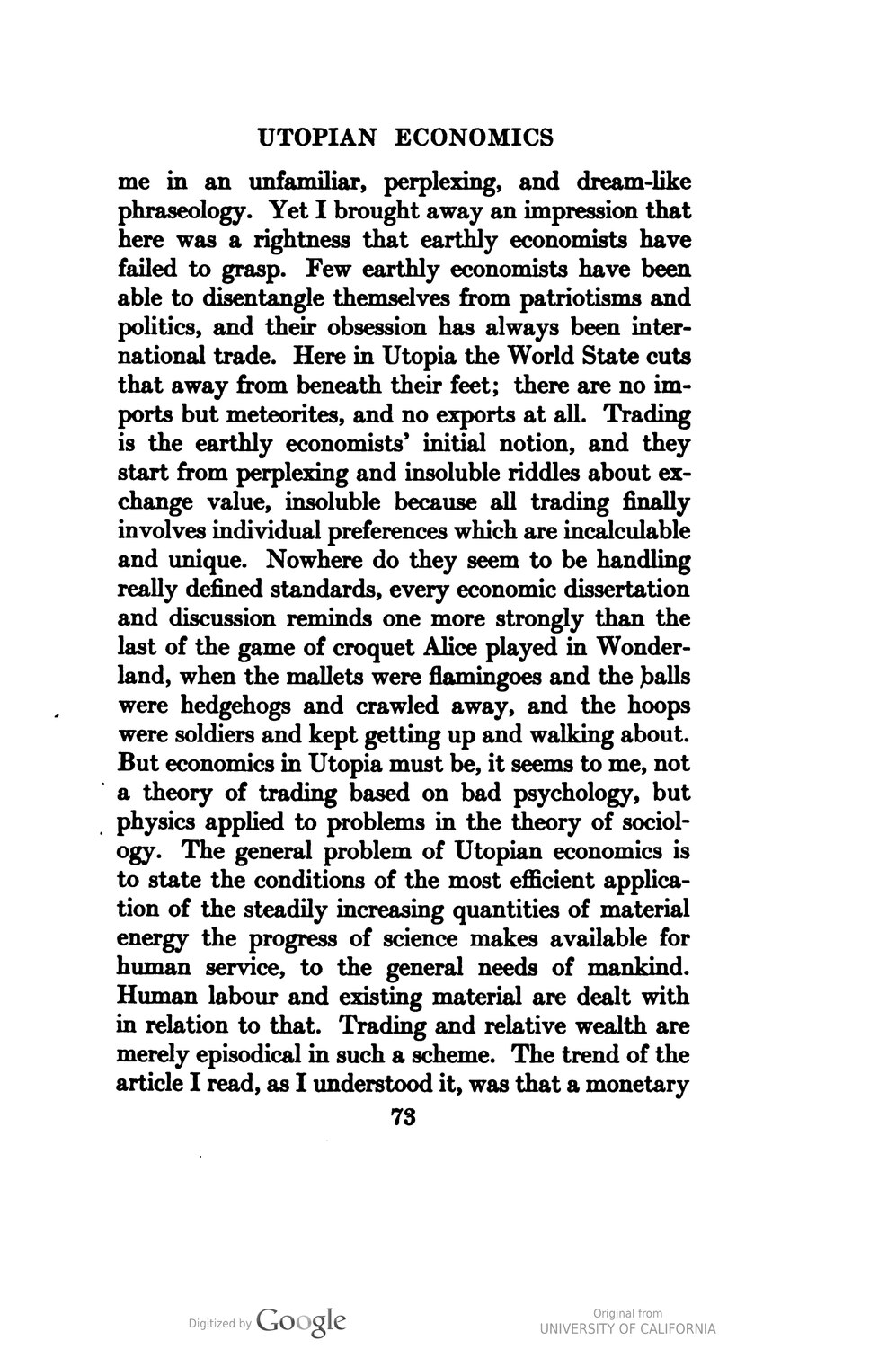UTOPIAN ECONOMICS
me in an unfamiliar, perplexing, and dream-like phraseology. Yet I brought away an impression that here was a rightness that earthly economists have failed to grasp. Few earthly economists have been able to disentangle themselves from patriotisms and politics, and their obsession has always been international trade. Here in Utopia the World State cuts that away from beneath their feet; there are no imports but meteorites, and no exports at all. Trading is the earthly economists' initial notion, and they start from perplexing and insoluble riddles about exchange value, insoluble because all trading finally involves individual preferences which are incalculable and unique. Nowhere do they seem to be handling really defined standards, every economic dissertation and discussion reminds one more strongly than the last of the game of croquet Alice played in Wonderland, when the mallets were flamingoes and the balls were hedgehogs and crawled away, and the hoops were soldiers and kept getting up and walking about. But economics in Utopia must be, it seems to me, not a theory of trading based on bad psychology, but physics applied to problems in the theory of sociology. The general problem of Utopian economics is to state the conditions of the most efficient application of the steadily increasing quantities of material energy the progress of science makes available for human service, to the general needs of mankind. Human labour and existing material are dealt with in relation to that. Trading and relative wealth are merely episodical in such a scheme. The trend of the article I read, as I understood it, was that a monetary
73
